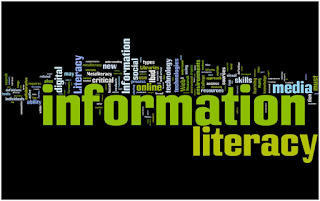Digital Humanities and African American Studies
This article is an updated version of a blog entry originally written in February 2015.
Digital Humanities is an area of research and teaching at the intersection of computing and the disciplines of the humanities. Developing from the fields of humanities computing, humanistic computing, and digital humanities praxis digital humanities embraces a variety of topics, [from artificial intelligence (AI)] to data mining large cultural data sets. Digital humanities (often abbreviated DH) currently incorporates both digitized and born-digital materials and combines the methodologies from traditional humanities disciplines (such as history, philosophy, linguistics, literature, art, archaeology, music, and cultural studies) and social sciences with tools provided by computing (such as data visualization, information retrieval, data mining, statistics, text mining, digital mapping), and digital publishing.
An academic librarian and humanities scholar trained in the interpretive methodologies of English literature, I wondered how these exciting new tools were explored within the fields of African American and African Studies. What new research questions and epistemological assumptions may AI, data visualization, text mining, and online collections engender?
A cursory Internet search yielded quite a few surprises.
According to Duke University Professor Dr. Mark Anthony Neal, the "relationship between Black Studies and digital humanities. . . is at once precarious and filled with potential" (Terman, n.d., para 2). Neal claimed that is precarious because digital humanities scholar[s] have" been imagined as a white, male academic[s]. (Terman, n.d., para 6). Neal noted that part of the problem is that the "field . . . continues to be driven by older scholars [who are] still very much tied to a [pre-digital] 1960s style Black Studies model.
I discovered Africa Past & Present, an excellent site that features podcasts "history, culture, and politics in Africa and the diaspora." If features several podcasts archived as digital humanities. I was particularly interested in Laura E. Seay's podcast in which she discusses her use of Twitter to document her academic work on the Democratic Republic of Congo.
"African American History", a digital humanities collection the Library of Congress, features excellent podcasts and virtual exhibitions about African American culture and history.
Overall, the intersection of digital humanities and African American/ African studies, with its challenges, seems to provide opportunities for new methodologies and theoretical frameworks within the digital humanities. I look forward to navigating this rocky terrain to contribute original scholarship to both digital humanities and African American/ African studies.
SOURCES
Alegi, P. & Limb. P. (2015, 3 Feb). Episode 89: Digital African studies Part 2 with Laura Seay. Africa Past and Present. Podcast retrieved 31 December 2023 from http://afripod.aodl.org/2015/02/afripod-89/.
Darnell, J. (2023, 30 Mar). Educator Voice: Artificial intelligence attempts Black history (and fails). PBS Newshour Classroom: Educator Voices. Retrieved 31 Dec 2023 from https://www.pbs.org/newshour/classroom/classroom-voices/educator-voices/2023/03/educator-voice-artificial-intelligence-attempts-black-history-and-fails
Library of Congress (n.d). Digital Collections: African American History. Retrieved 31 December 2023 from https://www.loc.gov/collections/?q=African+American
Rambsy, K. (2014, 17 Jan). Edward P. Jones and literary geo-tagging. Retrieved 31 December, 2023 from Cultural Front: http://www.culturalfront.org/2014/01/edward-p-jones-and-literary-geo-tagging.html.


Comments
Post a Comment